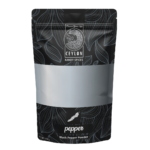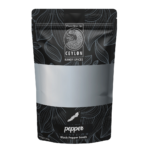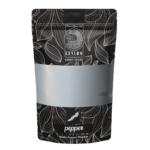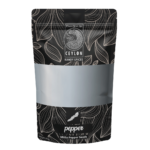PEPPER
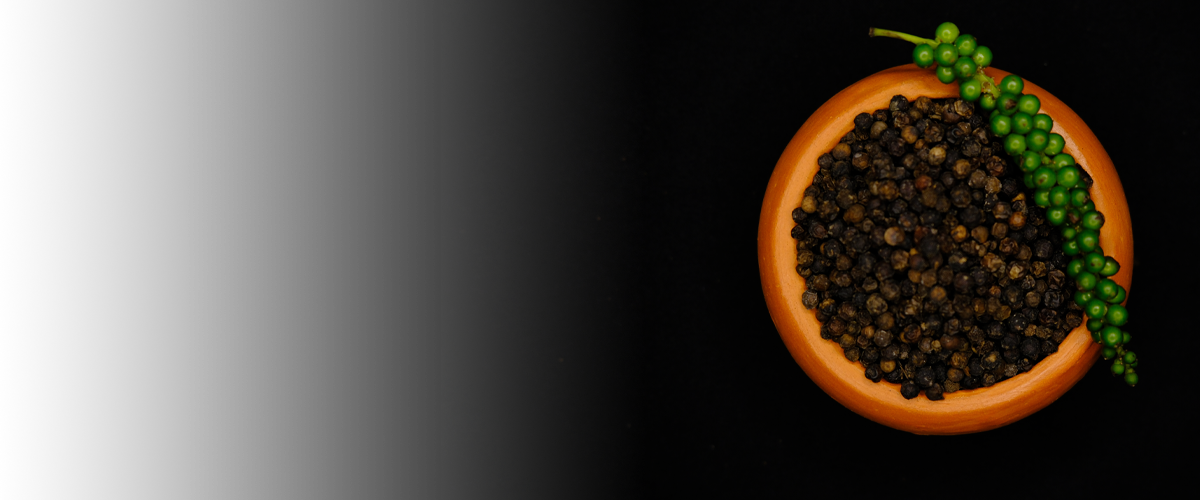
HISTORY
Pepper is the most widely used spice in the world and known as “King of the Spices”. Pepper crop is native to South Asia and historical records reveal that pepper is originated in South India. Peppercorns were a much-prized trade good often referred to also as “black gold” and used by as a form of commodity money. Until well after the Middle age, virtually all of the black pepper found in Europe, the Middle East, and North Africa traveled there from India’s Malabar region. It was some part of the preciousness of these spices that led to the European efforts to find a sea route to India and consequently to the European Colonial occupation of the country as well as European discovery and colonization of America/s. Vietnam, Indonesia, Malaysia, India, and Brazil are the main pepper producers in the world.
PRODUCTS AND USES
Pepper is largely produced as black pepper which is the dried whole fruit. White pepper is produced by removing outer pericarp and pepper is also available in crushed and ground forms. A small amount of green and ripened pepper is pickled in brine and dehydrated green pepper and preserved red pepper also traded. Pepper oil and oleoresins are also extracted marketed as value-added products. Pepper is mainly used as a spice and flavoring agent in the food industry. It also has industrial uses in perfumery and pharmaceutical industries.
MAJOR GROWING AREAS
In Sri Lanka pepper is mainly cultivated in Low and Mid country Wet and Intermediate agro-climatic zones. The total extent of pepper in Sri Lanka is about 42,989 ha and Matale, Kandy,Kegalle, Badulla, Ratnapura, Monaragala, and Kurunegala are the major districts.
MEDICINAL AND CHEMICAL PROPERTIES
Bioperine is a standardized extract from the fruits of black pepper (Piper nigrum) or long pepper (Piper longum). Its piperine content is 95% or more, compared to only 3-9% found in raw forms of these peppers. Black pepper extract, containing Bioperine has been used extensively in Ayurvedic medicine to treat fevers, digestive disorders, urinary difficulties, rheumatism, neuralgia and boils. Bioperine enhances the bioavailability of nutrients. Due to its ability to increase the absorption of nutrients comprising nutritional supplement formulations, Bioperine has been termed a natural thermo-nutrient and bioavailability enhancer.

